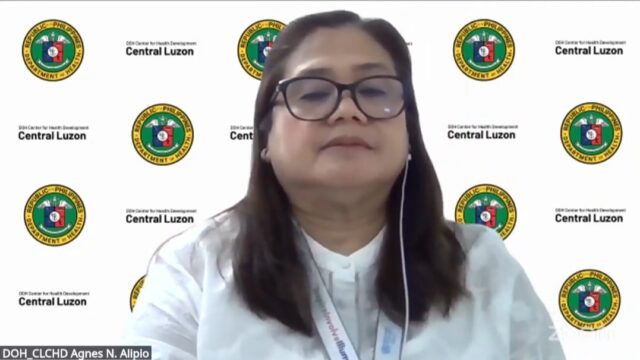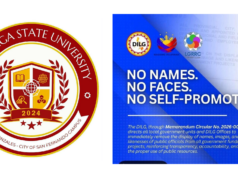
CABANATUAN CITY (PIA) — The Department of Health (DOH) Central Luzon Center for Health Development (CLCHD) continues to promote comprehensive elderly care through its programs and services aimed at ensuring the health, dignity, and well-being of senior citizens.
DOH CLCHD Senior Health Program Officer and Health and Wellness Program Coordinator for Senior Citizens Agnes Alipio emphasized the importance of nurturing the physical, mental, and emotional health of older adults.
“Aging is a blessing—it signifies that we have overcome many of life’s challenges. But as we grow older, caring for our body, mind, and emotions becomes even more important,” she said.
Alipio underscored that aging should not be seen as a weakness but as a wealth of knowledge, experience, and wisdom that deserves recognition and care.
She shared five essential ways to promote health among senior citizens—move and exercise; eat and hydrate; rest and sleep; maintain spiritual and psychosocial well-being; and undergo periodic medical check-ups.
Alipio stated that regular physical activity such as walking, stretching, or light dancing helps prevent hypertension, diabetes, and heart diseases while improving balance and coordination to reduce fall risks.
Eating nutritious foods like fruits, vegetables, and fish, and drinking enough water help maintain proper weight and prevent dehydration.
She also highlighted that adequate rest and sleep—at least six to eight hours a day—restore body cells and strengthen the immune system.
Moreover, maintaining faith, social connections, and community involvement promotes emotional stability and resilience.
Regular medical check-ups, she added, are essential to detect chronic illnesses early and guide proper medication and self-care.
Alipio likewise explained geriatric syndromes—common health conditions among older adults that affect their quality of life, such as delirium, frequent falls, urinary incontinence, pressure ulcers, frailty, sensory loss, and dementia.
She reminded families to be alert and responsive to these conditions, as early care and understanding can prevent serious complications.
“Let us remember that these conditions are not a normal part of aging and should never be taken lightly. Awareness and compassion are vital in preserving the dignity and quality of life of our senior citizens,” she emphasized.
“As family members, caregivers, and members of the community, it is our duty to watch over, understand, and support them in their journey through aging,” she added.
To strengthen elderly care, Alipio outlined several ongoing programs of the Department of Health under the Healthy and Productive Ageing Program, which aims to promote health and wellness among senior citizens and reduce the impact of chronic diseases.
These include the Immunization Program that provides free flu and pneumonia vaccines; screening and management of chronic diseases such as hypertension, diabetes, and heart disease; and cancer screening and geriatric monitoring for conditions like dementia and depression.
She also mentioned the removal of the purchase booklet requirement for medicine discounts under DOH Administrative Order No. 2024-0017, which allows senior citizens to avail of their 20-percent discount on medicines even without a booklet, provided they present a valid ID and prescription.
“Number five is the removal of the booklet requirement for medicine discounts. Even if a senior citizen forgets to bring their purchase booklet, they must still be given the discount and allowed to buy their medicines,” she explained.
Other initiatives include capacity-building programs for local health workers and the PuroKalusugan Program—part of the DOH’s Eight-Point Action Agenda—which brings primary health services such as check-ups, vaccinations, nutrition education, and non-communicable disease prevention to barangays, especially those in remote or underserved areas.
Through its continuing advocacy and health initiatives, the DOH reaffirms its commitment to advancing elderly care and calls on every Filipino to uphold compassion, respect, and dignity for older persons. (CLJD/MCAL, PIA Region 3–Nueva Ecija GIP)




